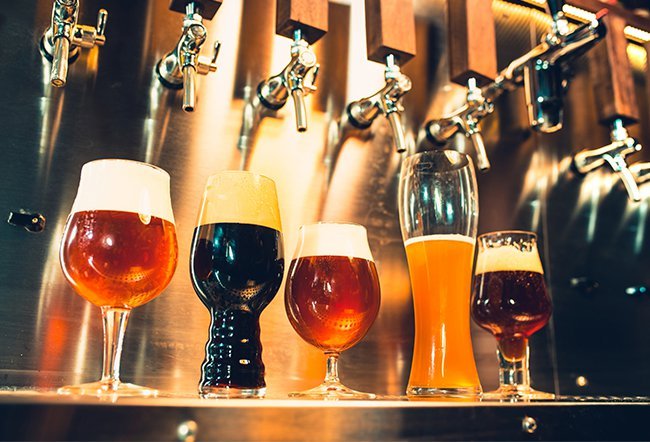Why Beer Is Bad for You

When it comes to beer, you may have heard about potential health benefits. But it’s important to remember that drinking beer can also be bad for you, especially when not consumed in moderation.
Because beer contains empty calories, drinking too much of it can make you prone to weight gain and obesity, which is the root of many other health issues. Excessive beer consumption can also increase your risk of heart disease, liver disease, and alcohol dependency.
Are there potential health benefits of beer?
Studies have suggested that beer can cause a modest increase in the levels of high-density lipoprotein (HDL) cholesterol and thus help prevent heart disease. Vitamin B6 (pyridoxine) in beer can also help lower homocysteine levels, which may help with heart health, since increased levels of the chemical homocysteine can put you at risk of heart disease.
Other evidence suggests drinking alcohol in moderation can be possibly effective for reducing the risk of conditions such as:
- Atherosclerosis (hardening of the arteries)
- Coronary heart disease (CHD)
- Heart attack
- Ischemic stroke (stroke caused by a clot in the blood vessel)
- Chronic heart failure in people aged 65 years or older
- Type 2 diabetes
- Digestive tract infection that can lead to ulcers (Helicobacter pylori or H. pylori)
If you do choose to drink beer, the key is moderation, meaning 2 drinks a day for men and 1 drink a day for women, with 1 drink equalling about 12 ounces.
However, if you don’t drink already, you don’t need to start drinking for the supposed health benefits. Instead, you can lower your cholesterol, control high blood pressure, manage weight, etc. by getting enough physical activity, staying away from tobacco, and following a healthy diet. The risks of drinking beer outweigh any potential benefits.
What are the immediate side effects of excessive beer drinking?
Excessive beer drinking cause immediate health effects such as:
- Flushing
- Confusion
- Trouble controlling emotions
- Blackouts
- Drowsiness
- Low blood sugar
- Vomiting
- Diarrhea
- Irregular heartbeat
- Mishaps such as motor vehicle accidents, falls, drownings and burns
- Violent activities including homicide, suicide and sexual assault
- Alcohol poisoning (a serious medical condition caused by high blood alcohol levels)
- Risky sexual behaviors (such as unprotected sex or sex with multiple partners that may result in unwanted pregnancy or sexually transmitted diseases)
What are the long-term health risks of excessive beer drinking?
Consuming 3 or more drinks a day is associated with an increased risk of:
- Hypertension (high blood pressure)
- Heart disease
- Hemorrhagic stroke (stroke caused by excess bleeding in the brain)
- Liver disease
- Digestive problems
- Malnutrition
- Cancers:
- Weakening of the immune system
- Learning and memory problems
- Depression
- Anxiety
- Memory loss
- Family problems
- Job-related problems
- Alcohol use disorders
Who should not drink beer?
Drinking beer or any other alcohol in any amount is unhealthy for people who are:
- Younger than 21 years of age
- Pregnant
- Driving or planning to drive
- Involved in work that requires skill, coordination and alertness
- Taking medications that can interact with alcohol
- Suffering from certain medical conditions such as alcoholic hepatitis and pancreatitis
- On the road to recovery from alcohol abuse or alcohol addiction
If you have a medical condition and have been put on medications, remember to always ask your doctor if you can drink alcohol and how much is OK for you.

